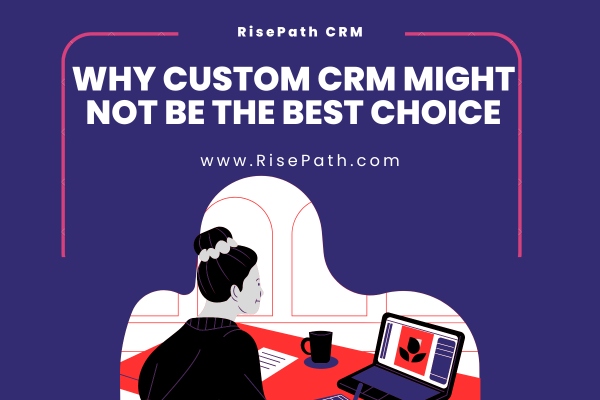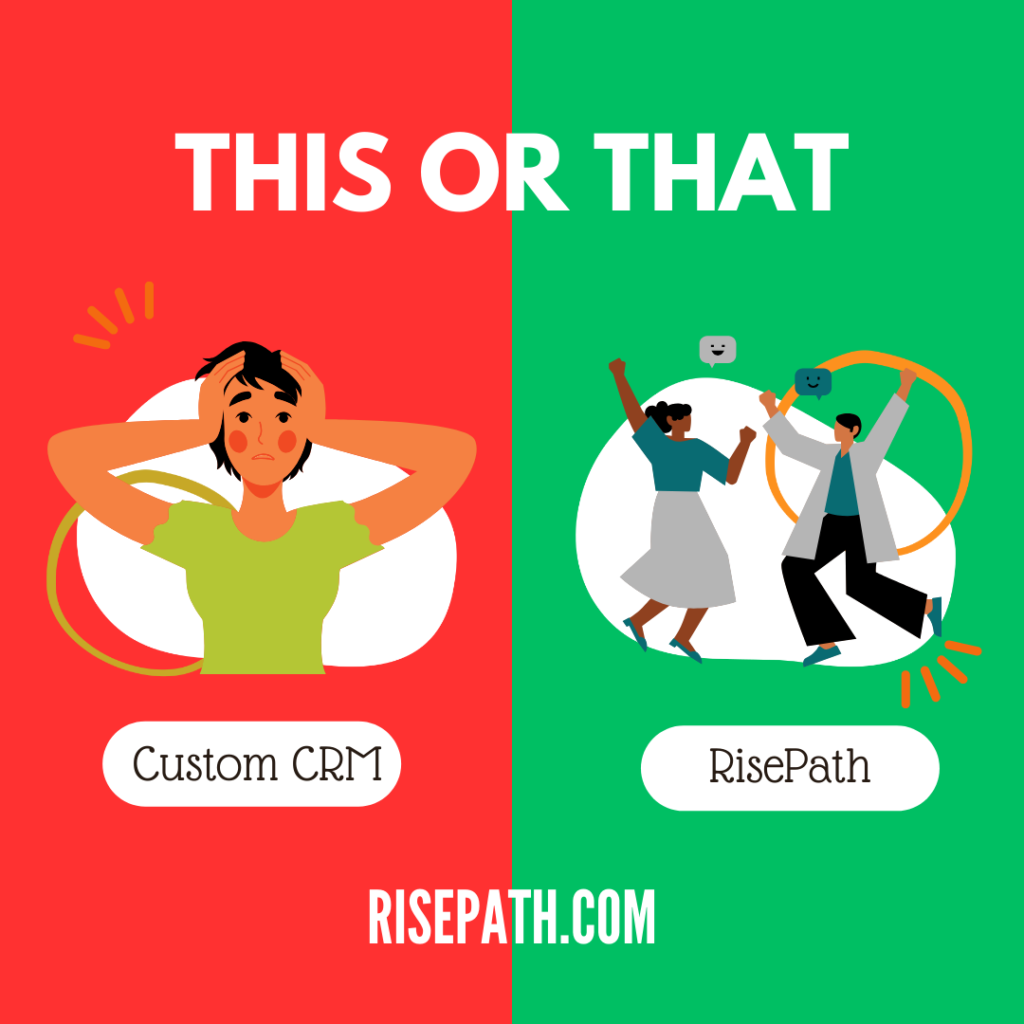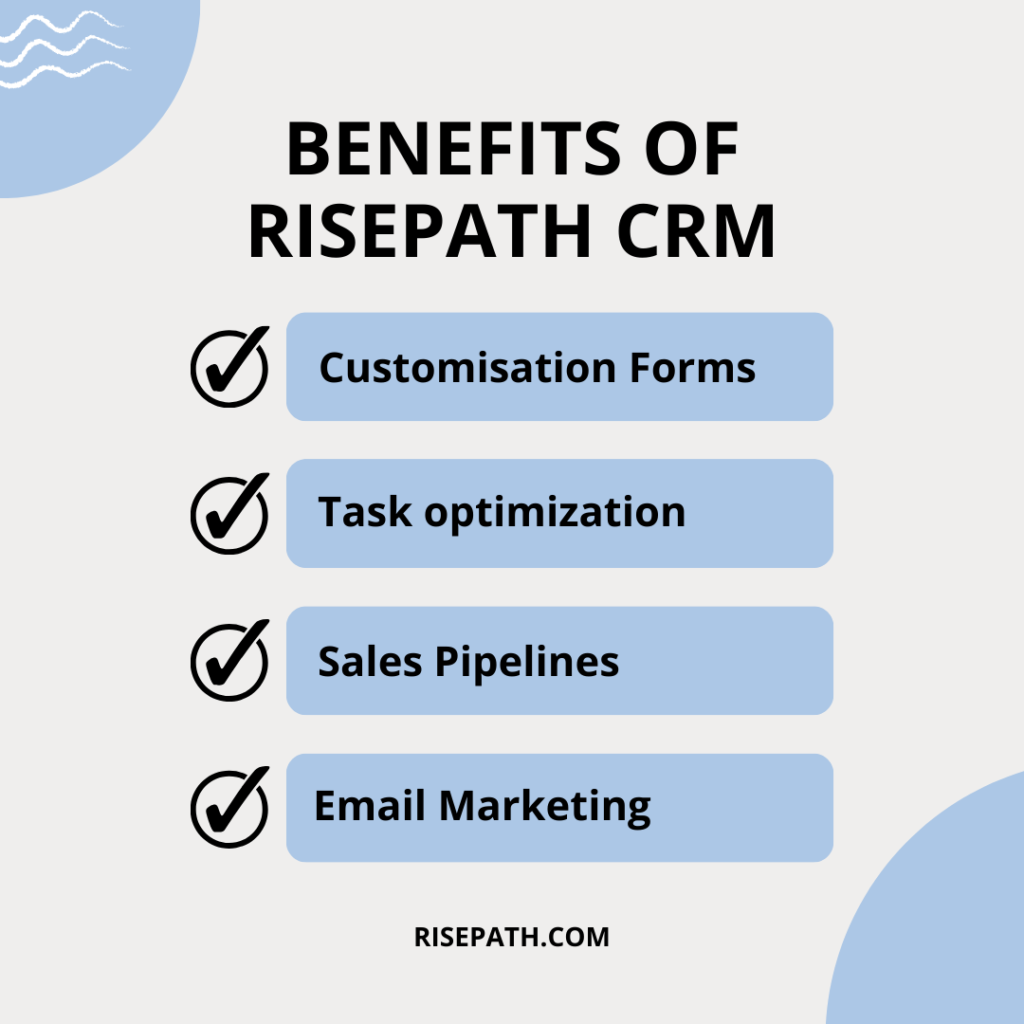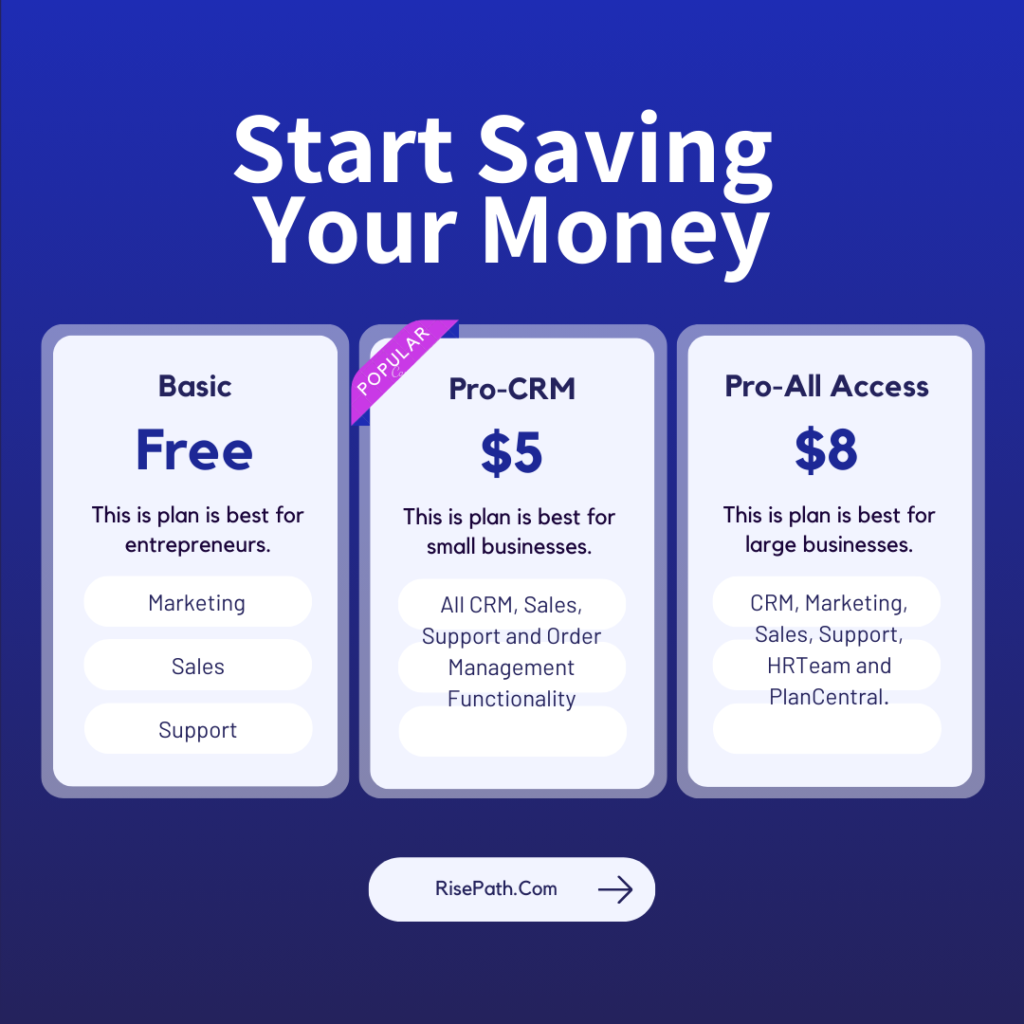If your company follows a unique sales process or offers a diverse range of products and services, the idea of developing a CRM system from the ground up may appear quite enticing. In theory, a custom CRM promises to encompass all the essential features tailored precisely to your organization’s requirements. It can eliminate unnecessary functionalities and align itself with your specific business needs, from the choice of in-product terminology to reflecting your team’s unique sales workflows.
However, the advantages seem to wane, particularly for small to medium-sized businesses that operate under constraints of both budget and resources. Customer Relationship Management (CRM) systems have become indispensable tools for companies of all sizes. These software solutions help businesses manage their interactions with customers and streamline their operations. While the idea of a custom CRM might seem appealing, it’s important to understand why it’s almost always a bad idea. In this article, we will explore the pitfalls of building a custom CRM and why off-the-shelf CRM solutions are often the wiser choice.
In this article, we will delve into the intricacies of in-house CRM systems. We will explore what exactly a custom CRM entails and analyze the potential advantages and disadvantages of opting for a bespoke solution. By the end of this discussion, you will have a clear understanding of whether a custom CRM aligns with your business needs or if alternative software options offer a more suitable fit for your organization.
What is a Custom CRM?
A custom CRM, often referred to as a homegrown CRM, is a CRM platform meticulously developed from the ground up. This undertaking is typically carried out either by an in-house software development team or through the services of an outsourced development team. In contrast to off-the-shelf CRM solutions provided by software vendors who build and maintain the software, a custom CRM is tailor-made to meet the precise specifications and requirements of the company implementing it.
The primary objective of a custom CRM is to enhance efficiency by eliminating the need for users to navigate through unnecessary features or invest time in customizing a pre-packaged CRM system to align with their unique workflows.
CRM systems play a pivotal role in enhancing business success by facilitating various functions, such as tracking potential customers throughout the sales pipeline and ensuring they receive timely attention. Additionally, CRMs are instrumental in optimizing marketing efforts by providing insights into lead sources that generate the most revenue.
Since every business operates differently, custom CRMs are constructed to address and streamline unique business processes, making them a versatile tool for organizations with distinct operational requirements.
Cost Overruns and Budget Constraints
One of the most significant drawbacks of building a custom CRM is the potential for cost overruns. Custom software development projects often end up costing significantly more than initially estimated. These projects involve not only the initial development but also ongoing maintenance, updates, and support. Small and medium-sized businesses, in particular, can find it challenging to manage the financial burden of a custom CRM.
Also Read: The Guide to Free CRM and Marketing Automation Software
Off-the-shelf CRM solutions, on the other hand, come with transparent pricing models and predictable costs. You can choose a package that suits your budget and scale as your business grows. This predictability makes it easier to manage your finances and allocate resources effectively.
Development Costs
The initial and most apparent reason to avoid a custom CRM is the substantial cost differential compared to off-the-shelf solutions. Creating a CRM system from the ground up, whether done in-house or outsourced to a development company, can result in a significant financial investment.
Estimating the cost of developing a custom CRM can be eye-opening. Competent software developers typically charge a minimum of $100 per hour for their services, and crafting a CRM is no small feat; it entails a complex software development process that demands a substantial financial commitment. Small-scale development companies might quote project costs ranging from $10,000 to $50,000, whereas enterprise-class software development firms could charge well over $500,000. It’s worth noting that these estimates do not encompass the expenses associated with ongoing support and the resolution of bugs following the CRM’s initial launch.
Also Read: Best CRM for Your Startup
A viable alternative is to explore customizable CRM solutions that do not necessitate a DIY approach. Platforms such as Caspio CRM and Zoho CRM offer varying degrees of customization. Nevertheless, these options come with their own set of challenges. Caspio CRM, for instance, imposes steep monthly fees for access to features required to build custom CRM applications, while customizing Zoho CRM necessitates coding expertise. In many cases, the obstacles associated with these alternatives outweigh the benefits.
In essence, the notion of constructing a CRM without incurring costs is unrealistic. While it might be possible to replicate certain CRM functions using Excel or a comparable spreadsheet program, the outcome would be a basic table containing lead and customer information, rather than an intelligent platform equipped with the full spectrum of features characteristic of high-performing CRMs. Should you opt for tools like Google Sheets or other spreadsheet software to build your CRM, your team’s capabilities would be significantly restricted.
The question that begs to be answered is whether the substantial financial investment required to incorporate every minor custom feature into your CRM is truly justified. In nearly all scenarios, the resounding answer is no. Today, there is an abundance of off-the-shelf CRM options tailor-made for specific industries or adaptable enough for self-customization. Most contemporary CRMs are hosted by providers and can be accessed for as little as $16 per month per user.
Training Costs
Off-the-shelf CRM systems often come bundled with a treasure trove of free training resources, including videos, tutorials, and articles. Frequently asked questions and common troubleshooting problems are meticulously documented within extensive knowledge bases. Some CRM brands even offer user onboarding and training as part of their packages, ensuring that your team can swiftly derive value from the software.
However, the same cannot be said for custom solutions. It’s unlikely that developers will create an array of videos or tutorials for your team to reference. In this scenario, you’ll be left with two choices: either create training materials internally or incur additional costs by paying the developers to produce them for you. Furthermore, if your team encounters queries while using the software, you cannot expect the developers to be readily available to provide answers whenever needed.
Time-to-Market Delays
Developing a custom CRM can be a time-consuming process. It requires careful planning, design, development, and extensive testing to ensure that it meets your business’s specific requirements. In the meantime, your competitors may gain a competitive edge by implementing off-the-shelf CRM solutions that are readily available.
Time-to-market is critical in today’s fast-paced business environment. Off-the-shelf CRM solutions are pre-built and can be implemented quickly, allowing your business to start reaping the benefits sooner rather than later.
Limited Features and Functionality
When you build a custom CRM, you have complete control over its features and functionality. However, this can be a double-edged sword. Custom solutions are often limited by the scope of your initial requirements. As your business evolves and your needs change, your custom CRM may become outdated and incapable of accommodating new demands.
In contrast, established CRM providers invest heavily in research and development, constantly enhancing their products. This means that off-the-shelf CRM solutions offer a wider range of features and capabilities, often incorporating industry best practices and the latest innovations. You can enjoy these benefits without the need for expensive and time-consuming customizations.
Maintenance and Support Challenges
Custom CRMs require ongoing maintenance and support. Any bugs, security vulnerabilities, or compatibility issues that arise must be addressed promptly. This can place a significant burden on your IT team and divert resources away from other critical business activities.
Off-the-shelf CRM providers, on the other hand, have dedicated teams that handle maintenance and support. They regularly release updates and security patches, ensuring that your CRM remains reliable and secure. This frees up your IT team to focus on strategic initiatives rather than day-to-day troubleshooting.
Risk of Incompatibility and Integration Issues
Integrating a custom CRM with other software applications can be a complex and challenging task. Incompatibility issues may arise, leading to data inconsistencies and workflow disruptions. Off-the-shelf CRM solutions often come with pre-built integrations or readily available APIs, making it easier to connect your CRM with other tools such as marketing automation, accounting software, and e-commerce platforms.
Which CRM Offers the Ultimate in Customisation?
If you’re on the hunt for a CRM that offers an unparalleled level of customization, look no further than RisePath CRM. This dynamic CRM platform empowers you with a wide array of customization options, making it the ideal choice for businesses seeking tailored CRM capabilities. Let’s explore some of the ways in which RisePath CRM stands out in the realm of customization:
Automation Tailored to Your Workflow
RisePath CRM excels in streamlining your sales and marketing processes by allowing you to automate tasks according to your team’s unique workflow. From creating personalized email sequences to crafting intricate custom automation workflows, RisePath CRM ensures that automation seamlessly integrates with your team’s work methods. This not only enhances efficiency but also empowers your team to work at their best.
Customisation Web Forms for Lead Generation
With RisePath Forms, you can fashion web forms that are perfectly customizable to suit your needs. These forms empower you to gather essential information from potential leads. You have the creative freedom to design forms exactly as you envision them, and embedding them on your website is a breeze. RisePath CRM places the power of lead generation firmly in your hands.
Flexible Sales Pipelines
RisePath CRM provides the flexibility you need to design the perfect sales process. Through sales automation, you can customize your sales pipeline, tailoring it to your unique requirements. Moreover, RisePath CRM offers guidance at every stage of the pipeline, ensuring that your team is always on track. Sales representatives can choose how they prefer to view and manage pipelines, enabling them to work in a manner that aligns with their strengths.
Tailored Reports for Data-Driven Insights
Comprehensive reporting is a cornerstone of any CRM, and RisePath CRM excels in this regard. The platform allows you to customize sales performance reports to gain insights that matter to you. Whether you’re interested in drilling down into data by product, lead source, sales representative, or any other relevant metric, RisePath CRM provides the tools to make it happen. You have the power to access the data you need effortlessly
Unique Email Marketing Campaigns
RisePath CRM’s Campaigns feature empowers you to effortlessly create email campaigns that captivate your audience at every stage of the sales funnel. Whether you prefer to use pre-designed templates or build emails from scratch, RisePath CRM supports your creative endeavors. You can specify the criteria that trigger email sequences, and RisePath CRM takes care of the rest, including tracking recipient engagement. This data-driven approach ensures that you can engage potential buyers effectively.
When it comes to CRM platforms offering an exceptional level of customization, RisePath CRM stands out as the top choice. Its robust set of features allows businesses to tailor their CRM experience to their specific needs, making it the ideal solution for both small businesses and enterprises seeking a CRM that adapts to their unique requirements.
Conclusion
While the idea of a custom CRM may seem tempting, it’s crucial to weigh the potential benefits against the significant drawbacks. In most cases, building a custom CRM is a bad idea due to cost overruns, time-to-market delays, limited features, maintenance challenges, and integration issues. Off-the-shelf CRM solutions offer a cost-effective, feature-rich, and time-efficient alternative that can help your business stay competitive and agile in today’s rapidly changing business landscape. Before embarking on a custom CRM development journey, carefully evaluate your needs and consider the advantages of off-the-shelf solutions.
.




Comments are closed, but trackbacks and pingbacks are open.